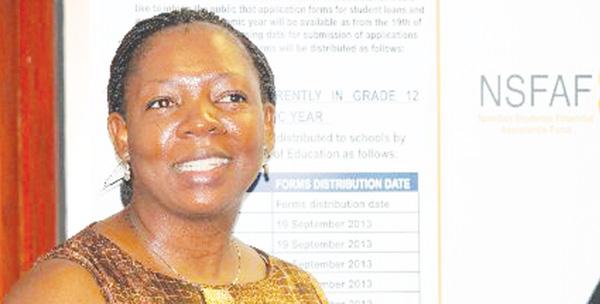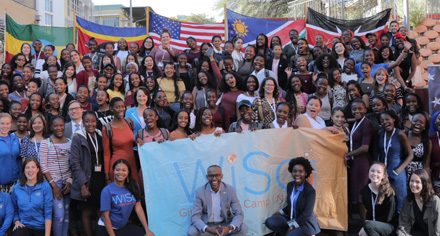
NSFAF giving students financial independence

In an effort to provide clarity and explain both the position of the students and the Fund regarding concerns that a number of students have raised on refunds, the Namibia Students Financial Assistance Fund early this week held consultations with several institutions of higher learning, as well as student leaders.
Since the establishment of the Fund it used to make payments directly to institutions of higher learning and after the institutions have deducted their dues, they paid the remainder of the money to the student. This caused unnecessary delays for the students, who sometimes had to wait for the entire year before receiving their refunds.
The Fund was established to pay for tuition fees for Namibian students but it was felt that the procedures needed to be amended so that it would directly benefit the students. Since the beginning of 2014 the Fund introduced a pilot project to split tuition and non-tuition fees. The Fund paid tuition fees directly to institutions of higher learning while the non-tuition fees were paid directly to students.
This new policy and process gives the students a great deal of financial independence.
Knowing how to manage your finances is an essential life skill for students. The students can now utilize non tuition fees for other essential educational support activities. They can use this money to buy books, pay for taxis and even accommodation, provided there’s enough money remaining, once the Fund has paid their tuition fees.
This pilot project was rolled out at both the University of Science and Technology and the International University of Management. In 2015 it was extended to the University of Namibia.
The Fund has strict predetermined rates approved by the board of directors based on the kind of programs and the level of educational qualification students are pursuing. This means that a Certificate student gets less financial assistance compared to a Diploma student, while a diploma student in turn gets less financial assistance compared to a student who is pursuing a full medical degree. This can lead to discrepancies in what students actually receive as their non-tuition fee or sometimes referred to by the students as refund.
There are a variety of reasons why the Fund funded students might be getting different amounts of money for non-tuition fees. It can be attributed to students utilizing other services of institutions of higher learning that also cost money; living in hostels for example will lead to different levels of tuition fees for students pursuing the same degree.
Miss Hilya Nghiwete, the fund’s CEO stated ”The Fund and its line ministry, the Ministry of Higher Education, Training and Innovation continue to champion the cause of developing human resource capital through education to attain our vision as set out in Vision 2030.”












































